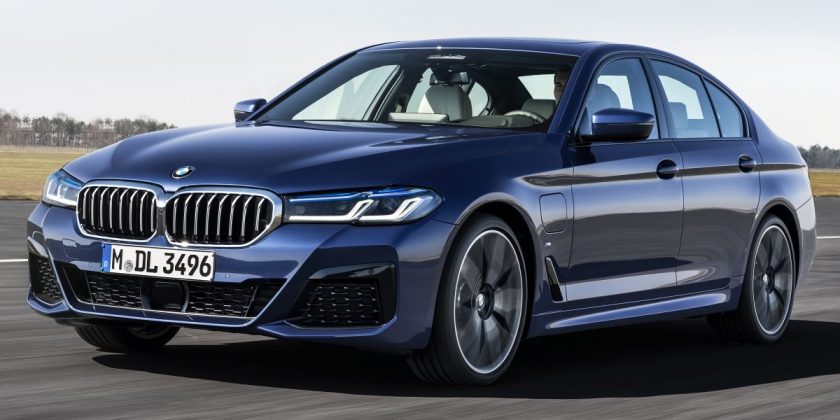BMW has reportedly confirmed that the next-generation 5 Series and X1 models will both be offered with a fully electric powertrain. Currently, both models are available with the convention petrol and diesel engines, as well as a plug-in hybrid variant, Autocar reports.
The move falls in line with the Bavarian automaker’s ambition of launching 25 electrified models by 2023 – the initial target date was 2025, but BMW is certain it can deliver its promise. This is on the back of the company’s pledge to reduce CO2 emissions, and it has already made “sustainability and resource efficiency central to the company’s strategic direction.”
The 5 Series and X1 EVs will join the next 7 Series as well, and by the time these cars are launched, BMW will also have launched the iNext electric SUV, the smaller iX3, and the i4 sedan. BMW’s bread and butter 3 Series model could also go full electric, after a prototype was sighted earlier this year.
Not much is known of the 5 Series in particular, but there exists an experimental unit called the BMW Power BEV (disguised with the pre-LCI 5 Series shell), which is a 710-hp electric car featuring the automaker’s fifth-generation electric drive unit. It does the 0-100 km/h sprint in under three blistering seconds.
By 2030, BMW aims to build more than seven million electrified vehicles, two thirds of which will be fully electric models. Company CEO Oliver Zipse said: “As a premium car company, it’s our ambition to lead the way in sustainability. That’s why we’re taking responsibility here and now and making these issues central to our future strategic direction.”
“This new strategic direction will be anchored in all divisions – from administration and purchasing to development and production all the way to sales. We’re taking sustainability to the next level,” he added.
Additionally, BMW says it will pay more attention to “upstream added value” in order to ensure the well-to-wheel environmental impact of its EVs doesn’t cancel out improvements elsewhere. To achieve this, it will analyse suppliers’ carbon footprints when awarding supply contracts and work to build “the most sustainable supply chain in the entire industry.”
Source: Read Full Article


